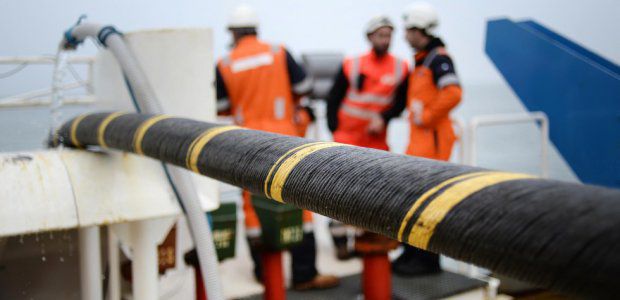The Euroasia Interconnector consortium has requested a restart of failed negotiations concerning the development of Crete’s major interconnection planned to link the island’s power grid with Athens, sources have informed.
Negotiations between the Euroasia Interconnector and IPTO, Greece’s power grid operator, both seeking control of the Cretan major interconnection project’s development, fell through less than a fortnight ago, and, in response, the European Commission gave RAE, Greece’s Regulatory Authority for Energy, two months to decide on how the Cretan segment of the wider Euroasia Interconnector project will be developed and by whom.
The wider Euroasia Interconnector project, a PCI-status project awarded to the Euroasia Interconnector consortium, is planned to link the Greek, Cypriot and Israeli power grids via Crete.
In the ordeal’s latest development, the Euroasia Interconnector consortium has just forwarded a letter to all parties involved – the European Commission, ACER (Agency for the Cooperation of Energy Regulators), RAE and its Cypriot counterpart RAEK, as well as IPTO – seeking fresh talks following the recent breakdown.
The Euroasia Interconnector consortium, in its letter, appears willing to accept a minority role for the Cretan segment of the wider interconnection project but insists on having a say in interoperability matters and project specifications.
In the letter, the Euroasia Interconnector consortium also doubts a recent ACER update contending the Greek-Cypriot-Israeli interconnection has fallen well behind schedule and, furthermore, questions whether RAE has the authority to become involved in decisions concerning the project’s Cretan interconnection segment.
The Euroasia Interconnector consortium, in the letter, insists on the staging of a tender for all the project’s converters. This is one of the contentious issues that has troubled the consortium’s negotiations with IPTO as the power grid operator views the stance as pressure by Euroasia Interconnector for control over technical specifications and tenders concerning the project.
IPTO sees no reason to reconsider or change its course as a result of the letter, sources noted. Negotiations between the two sides broke down at a meeting on July 12.
Prior to the collapse, IPTO proposed the establishment of a special purpose vehicle (SPV), which the Greek power grid operator would control with a majority stake, to finance, develop and operate the Cretan interconnection. Regulators and the European Commission viewed the IPTO proposal as the only basis for negotiations before the breakdown.





